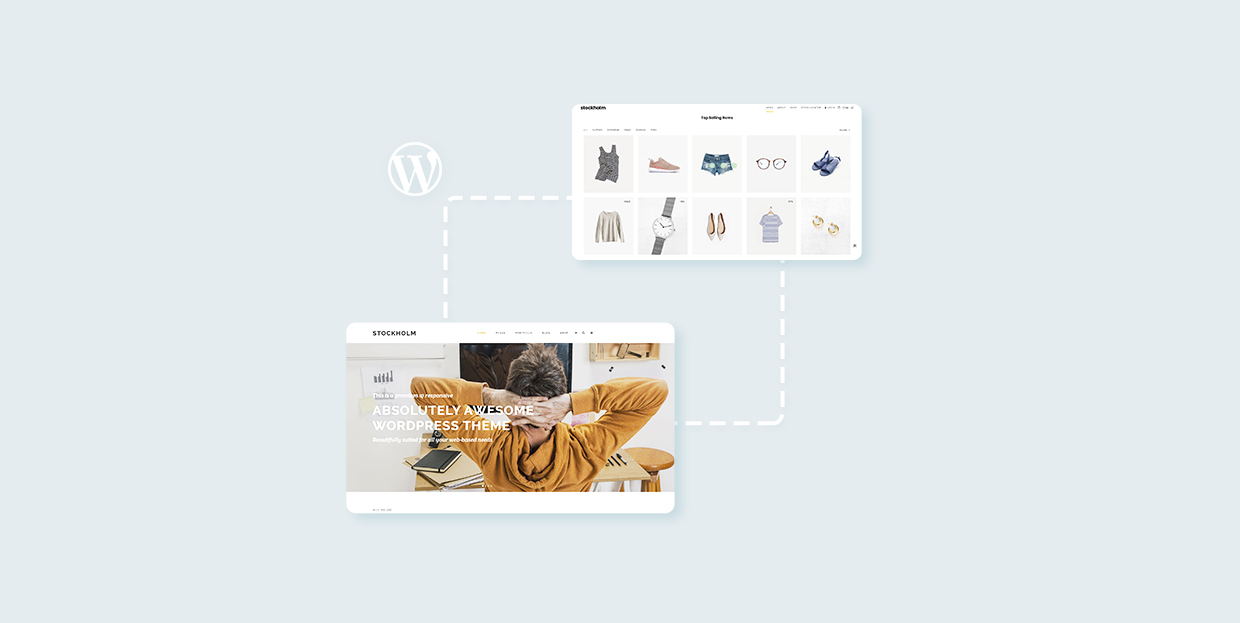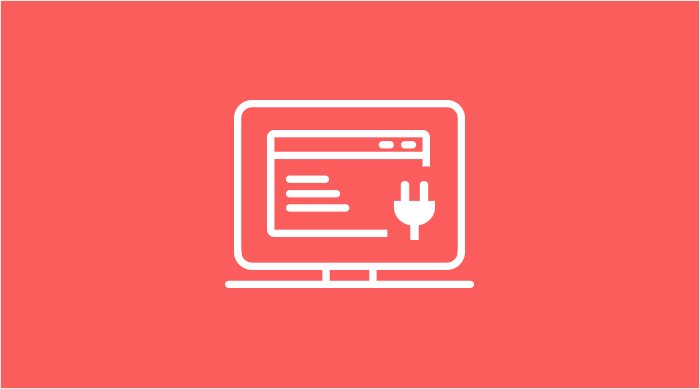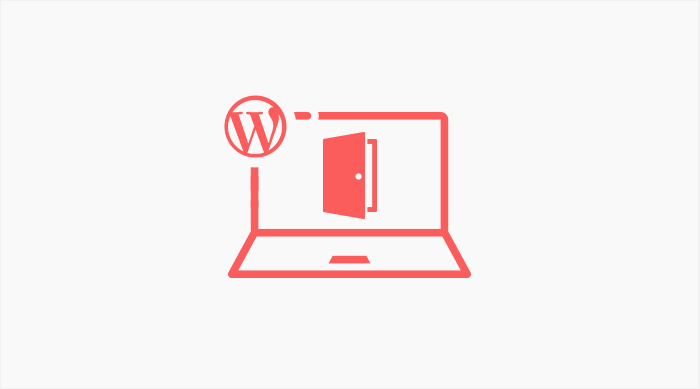Why You Should Use WordPress for Your Website?

How great are all the choices you have every time you go online? You can choose the social networks you want to hang out on, the media websites that shape your opinions, the streaming platforms that host your content. And if at any point you’d like to add to the abundance of all things digital that is the internet, you’ll have to make another choice — which platform should I use for my website?
You’ll surely have plenty of options, what with all the cloud builders out there that help you make a website in a jiffy. But those platforms don’t actually lead the market. WordPress does. It’s as vital and viable as ever, and here are the reasons you should use it for your website:

Although you wouldn’t be able to say it based on the size of its core files, WordPress is a big deal. The amount of impact those couple of dozen megabytes have on the internet as a whole makes WordPress a giant among content management systems with an appropriate market position.
If we’d use numbers to explain WordPress’ hold over the industry, we’d mention that:
-
WordPress powers more than a third – (35%, to be precise) of the internet.
-
Estimates put the number of active WordPress websites at over 450 million.
-
WordPress has a market with a share of over 60% among CMSs.
-
You can use WordPress in over 100 languages.
WordPress’ user base is still expanding, which should be proof enough that it’s a good system with plenty to offer. But as you’ll see from this list, the sheer size of the community around WordPress had an enormous impact on the versatility and customizability of WordPress. The CMS has a gravitational pull of its own that attracts talented individuals and organizations. They, in turn, contribute to making WordPress even better, giving a boost to the pull.

WordPress was originally a blogging platform. You can still see it in some of the features, such as the ability to add a title to every page, whether it actually needs it or not. WordPress is still very friendly towards bloggers, and you’re more than welcome to use it to create your blog. You’ll have access to all the features and the tools you need to build and grow it.
However, you can just as easily take the last couple of sentences and replace “bloggers” and “blog” with “e-commerce businesses” and “online store.” Or replace them with “online communities” and “forums.” Or maybe even “businesses” and “landing page.” Or “professionals” and “portfolio.”
You can use WordPress to build any one of these websites. Keep in mind though, that even though WordPress does a lot of it on its own, at a certain point it will need some third-party assistance to meet your needs. But because it’s such a widely used content management system, there’s always plenty of eager helping hands. And that leads us to one of the best things about WordPress.

The significance of its large user base and a number of auxiliary businesses caught in WordPress’ gravitational field becomes apparent when you start digging into plugins. WordPress owes a lot of its versatility to plugins. There would be significantly fewer uses for WordPress if there weren’t for plugins to expand the core functionalities.
You can head over to WordPress.org and see for yourself how many different things you can do with the over fifty-five thousand plugins you can download from the website. Some will offer great new features and allow you to enhance your website and analyze its performance. Others will do little more than make you smile by, for example, showing you random parts of lyrics to “Hello Dolly.”
With so many great things you can do with plugins in WordPress, you can easily get carried away and install lots and lots of plugins. Having too many plugins can put a strain on your resource pool and slow down the performance of your website. Plugins are routinely among the biggest space hoggers in WordPress installations. Use them freely, but also wisely.

Plugins won’t cut it when it comes to creating a specific look and feel for a website. WordPress is great in that department too, as it offers you different ways you can mold the appearance of your website into something that matches your vision, as well as its purpose. WordPress themes might be the most convenient way to give your website a professional sheen.
A WordPress theme will contain design elements and website functionalities that are appropriate for the purpose of your website. If you’d look at WordPress themes for listing and directories, you’d notice that they have different elements, features, and layouts than, for example, WordPress real estate themes.
Premium themes will often come bundled with specific plugins that match the website’s function. WordPress online store themes will usually come with the WooCommerce plugin. Charity WordPress themes will come with donation plugins. You don’t have to stop there, either. Just like you can customize how a theme looks, you can also decide to use additional plugins with it. You can use a theme as a starting point for the customization of your website, or you can use it as an out-of-the-box solution.

If you’re making a website, you might as well do everything you can to make it as discoverable as possible. In most cases, the contents of your website will be aimed at an outside audience — people who might find it through search engines. And when the success of your content and website depends on search engines, it’s best that you learn to play nice with them. WordPress can help.
When it comes to being search-engine-friendly, WordPress takes the cake simply by allowing you to do an incredible lot to optimize your website for maximum visibility. Whether it’s including meta descriptions or creating search-engine-friendly permalinks, WordPress will let you do it.
But it’s important to make a distinction here between being search-engine-friendly and being search-engine-optimized. WordPress is the friendly kind because it makes it so easy to optimize a website. In fact, if you’d want the best possible optimization, you’d need to know a thing or two about WordPress plugin installation and which plugin to get (hint: it’s easy and Yoast). You’d do well to look for optimized themes, too.

WordPress does its fair share in making the internet a safer place. It has to — the internet sure can be dangerous, with all sorts of nefarious characters running around and trying to make bad intentions come to life. One of the ways they’ll do that is by hacking websites. They do it so often, in fact, that the website InternetLiveStats has a dedicated tracker page for hacked websites.
The fact that WordPress is such a popular CMS with a large user base makes it a natural target. But the size offers some protection, too. You can expect security patches to be deployed as soon as the community realized there’s a possible issue. That’s why you won’t hear about too many zero-day exploits happening with WordPress’ core files.
You can always pick one of the best WordPress security plugins and install it on your website if you need an extra layer of security. But it’s also important to remember that, even though WordPress does help your website stay secure by releasing security patches, it’s often you who has to install them. So you could say that WordPress is as secure as you’re willing to make it.

If it hasn’t struck you by now, WordPress is a very approachable and welcoming CMS. For starters, you don’t have to pay a dime to be able to use it — the core file is available free of charge for everyone to download. It’s also open-source software. You can tinker with it as much as you want, or just get the benefits from other people’s tinkering.
Everything about WordPress screams user-friendliness. Do you need to find website hosting that supports WordPress? Most self-respecting hosts do, and some even offer one-click WordPress installation. Do you need to install WordPress manually? You can do it with the famous 5-minute WordPress installation. Need to install a WordPress theme? It’s just as easy as doing anything else on WordPress. Do you need to scale it up or down? WordPress is flexible enough to follow your lead.
Don’t get us wrong — there are plenty of things about WordPress where you can take a deep dive and get a more technical look. You can also use it if you know how to code, and you can customize it all you want using CSS. But for the most part, it’s a content management system whose defining trait is that it can be set up in minutes and used by anyone who is computer-literate. That’s the promise of WordPress, and the CMS never failed to deliver on it.
Let’s Wrap It Up!
The choice of content management systems is one of the things that can determine the future of your website early on. Choosing a popular CMS will grant you access to infinite ways to customize your website and a vibrant community to provide help when you need it. Those two alone would be all the reasons you’d even need to use WordPress for your website.
But the list doesn’t stop there — WordPress is spreading as widely and quickly as it is because people are coming up with new reasons to use it day after day. The only real question you should be asking yourself is when are you going to join their ranks and start exploring WordPress for yourself.




